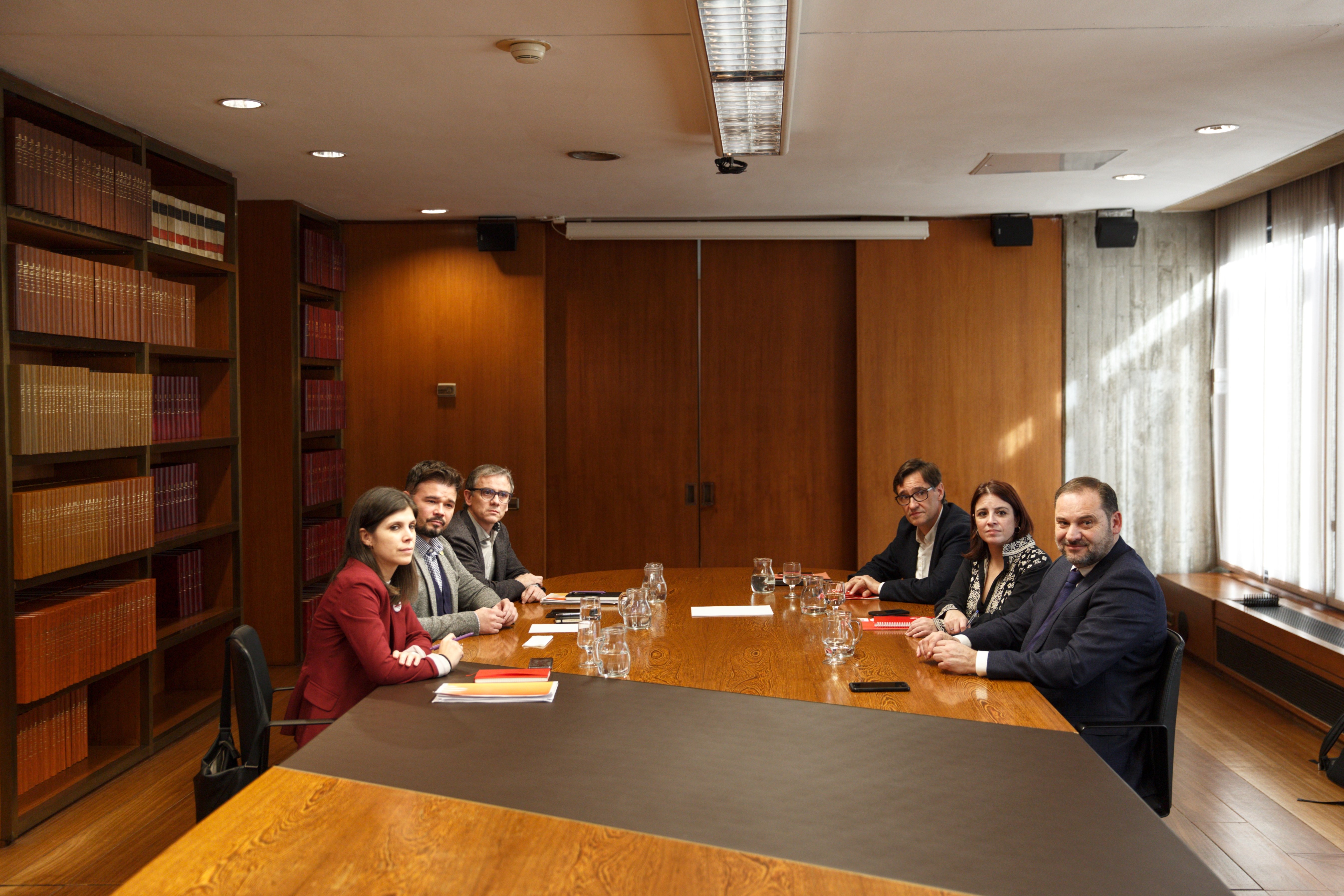Spain's Congress is already on standby in case it needs to activate all the machinery and invest a new government over the Christmas holidays. The leader of the Socialists (PSOE), Pedro Sánchez, wants his present this year to be the formation of new Spanish government with himself at the helm - and the sooner he receives it, the better. However, everything is in the hands of Catalan pro-independence party ERC, which is awaiting the position taken by the State Solicitors' Office on last week's crucial European Court of Justice ruling that gave parliamentary immunity to the jailed ERC leader, Oriol Junqueras. Esquerra Republicana want a gesture, in favour of allowing the release of their leader, to allow them to resume negotiations and tie up the remaining "loose ends".
Junqueras' colleagues announced on Thursday that they would not sit down at the table again with the PSOE negotiating team until the State Solicitors - who represent the Spanish government's view in legal proceedings - pronounce their opinion on the EU court ruling. However, there have been "discrete contacts" between the two parties, as party spokesperson Marta Vilalta admitted in a press conference on Monday, where she also acknowledged that only a few "loose ends" remained to be settled in the negotiation.
Once the State Solicitors have announced their prescription on the Junqueras case, which must be before Friday, and as long as they do so in a way that is "compatible" with the view of ERC, which has called for Junqueras' release and the annulment of the trial, the Catalan party will ask for a new meeting with the PSOE to firm up the details of the agreement, and then hold a national council meeting, necessary because the party heirarchy has up till now maintained a 'no' position on using its votes (through an abstention) to allow Pedro Sánchez to become new Spanish prime minister.
The investiture debate: when?
The date of the Spanish Congress' investiture session, however, remains unclear. ERC's official line is that the important thing is not the date, but rather forming a solid agreement. However, Congress has circled December 28th, 29th and 30th as possible sitting days if all members of Spain's lower chamber are to be gathered, while in the ERC agendas, the whole period from December 27th to January 4th, has been kept free.
Nevertheless, the most likely dates seem to be the week that follows the Dia de Reis holiday on January 6th, considering that the State Solicitors have not yet spoken, that this is a holiday week, and that ERC wants to meet with the PSOE and then to convene an internal meeting before the plenary in Congress.
One month of negotiations
ERC and PSOE began exploring a government pact just on a month ago, after the ERC rank and file had voted in an internal consultation to block the formation of a new Spanish government if no negotiation was opened with the PSOE on the Catalan conflict. Since then there have been a number of encounters, three in public and others in secret, and various exchanges of documents and messages.
Junqueras's party are calling for a negotiation table between Spanish and Catalan governments, where discussion on all subjects would be open - including self-determination and the end of the repression in Catalonia - with a clear timetable and guarantees of compliance. The Socialists, on the other hand, began the negotiation from the view that this negotiating table had to be articulated through the Bilateral Commission, an instrument contemplated in Catalonia's Statute of Autonomy. This was unthinkable for the ERC negotiators, who believe that a "political path" must be activated to resolve the conflict with a different formula.
"We've got this far, but we still have to finish deciding the specifics," Vilalta said at the beginning of Christmas week, suggesting that the Socialists had given way on the question for the negotiation table and a new instrument had been agreed on. However, negotiators have shown a marked reluctance to speak in an effort to prevent everything from derailing. Despite the absence of these details, and subject to another meeting between negotiators, it seems that the agreement - and with it the formation of a new Spanish government - is getting closer all the time.

